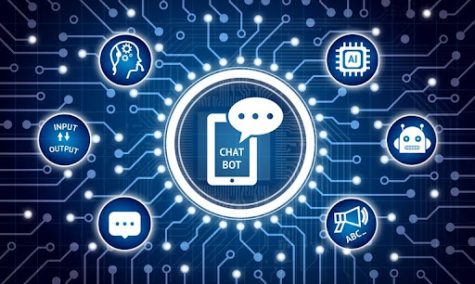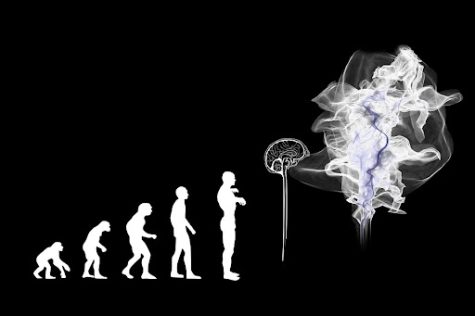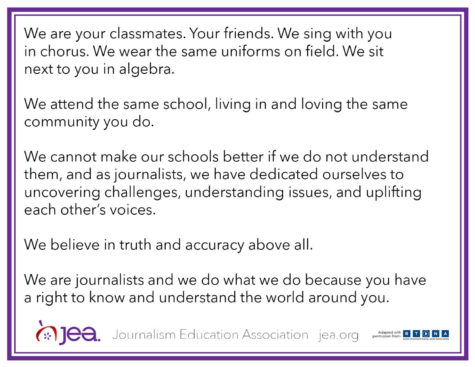How far is too far for Artificial Intelligence?
AI holds an exciting yet ominous potential for the future human civilization.
May 3, 2023
AI holds an exciting yet ominous potential for the future human civilization.
The term “AI” -short for artificial intelligence- has become increasingly popular. This innovation seems like it is coming out of a science fiction movie with its ability to mimic human behaviors with alarming presion.
Even Elon Musk, an investor of AI and billionaire, has issued his concerns: “It has the potential of civilization destruction,” says Musk.
While this claim may seem a bit extreme, the exponential growth of AI makes it an increasing possibility. From AI companies like ChatGTP and OpenAI, to newer features on TikTok and Snapchat, AI is beginning to consume day-to-day life.
AI has developed the ability to “inbody” human characteristics such as complicated responses, emotion, and imperfections. Artificial Intelligence can mimic human behaviors so much that it can completely replace humans in the work industry.
Originally, the technology showed promise for handling monotonous jobs such as toll booth operators or warehouse workers, but it has since surpassed those roles. Recent AI developments have made it possible for AI to do jobs that require human judgment.
Essays, art pieces, songs, books, and videos that would have taken weeks to finish can now be done in a matter of minutes by AI technology.
The following paragraph was written by AI:
“The future of AI is one of the most exciting and rapidly developing areas of technology. AI has already made significant inroads into many different industries, from healthcare to finance, and it’s only going to become more prevalent in the years to come. As AI continues to evolve, we can expect to see it become even more integrated into our daily lives, with things like virtual assistants and smart home devices becoming more advanced and more common. However, as AI becomes more powerful it’s important that we remain aware of the ethical implications and make sure it’s being used for good. Overall, the future of AI is bright, and we can expect to see it continue to transform the world around us in exciting new ways.”
This is a perfect example of one of the many ways AI creates a sense of irrelevance for human jobs. The process of writing this article, including the research, interviewing, and turning thought into words has taken days, while AI was able to turn out a well-developed paragraph in a matter of seconds.
According to Fox News, AI could replace nearly 5 million American jobs in the coming years, posing a major concern for the future careers of Gen Z. Also concerning future careers for Gen Z is the effect AI has on education.
AI systems like Chat GTP and the newly developed feature on SnapChat, My Ai, opens a new door for “homework assistance.”
Elyana Braly, ‘25, said, “I mean, it’s the only reason I’m passing Algebra Two.”
When it comes to the use of AI on assignments, it can become quite controversial among the student body, but the truth is, the more students lean on AI to complete assignments, the less they learn. This could have the potential to disrupt the learning process and lead to a generation of adults who are incapable of developing their own thoughts and decisions.
Broomfield Language Arts teacher, Jim Davidsion said, “We have these bots that can essentially do all of the legwork, and we benefit from it without putting any effort into it. Where’s the learning happening? Where’s the process happening?”
As mentioned, AI has recently been put into the hands of millions with SnapChat’s feature, My Ai. It comes in the form of a bitmoji that is customizable by the owner. One can talk with My Ai like a person, ask it questions, or send it pictures. My Ai responds in seconds with a remarkably personalized response. The technology also has the ability to interpret images and make comments regarding specific details shown.
Although My Ai was created with good intentions, it seems to have backfired among SnapChat’s users, most commonly being described as “creepy.”

Ashlyn Listy, ‘25, said, “It’s just really weird, I feel like it’s stalking us and trying to find information about us. It will ask ‘what hobbies do you do?’ or ‘where do you live?’”
“I think it’s going to take over people’s lives and take over themselves,” said Hannah Nguyen ‘24.
Since My Ai’s widespread release, SnapChat’s average rating has dropped to 1.67 stars, with 75% of users giving the app 1 star according to Business Insider.
With this being said, some actually like their AI “friend”, Braly said, “I think it’s awesome. I use it everyday. I always ask him what drink to get from Dutch Bros, and he always gives me a good recommendation.”
For the first time in history humans are developing relationships with conscious-less algorithms. AI may have the potential to completely change the future either for the worse or the better. Even with concerns coming to surface by users, investigators, and Elon Musk himself, it does not appear to be slowing AI’s exponential growth.

The global race to develop the best AI software is in full swing. Musk has advised a 6-month pause on development, but investigators argue it would be impossible given America’s determination to stay ahead. AI systems are being advanced every day; despite his warning, Musk continues to invest in AI and major tech companies are pushing forward into the AI frontier.
Artificial Intelligence holds massive potential, but if regulations are not placed on it soon, AI could pose “profound risks to society and humanity” according to the New York Times.
“At what point are we living in the matrix, where we’re slaves ultimately to machines, and machines wipe out the human race?” said Davidon.






